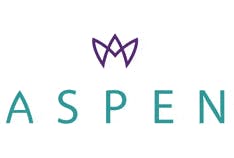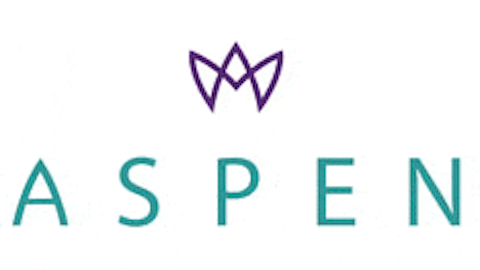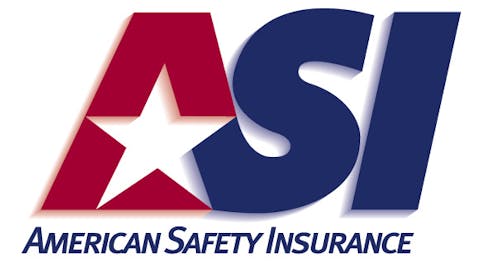David Einhorn, one of the most successful hedge fund managers, has been bullish about one small-cap insurance stock, Aspen Insurance Holdings Limited (NYSE:AHL). As of March 2013, he owned more than 4.9 million shares in the company, accounting for 2.9% of his total portfolio. For the past five years, Aspen has increased more than 46%, outperforming the S&P 500’s return of only 20.9% in the same period. Let’s take a closer look to determine whether or not Aspen is a buy at the current price.
The insurer with underwriting profit
Aspen Insurance Holdings Limited (NYSE:AHL) is an insurance and reinsurance company with two underwriting segments: Insurance and Reinsurance. In 2012, the Insurance segment generated more than $1.35 billion in gross written premiums, accounting for 52.5% of the total gross written premiums, while the reinsurance segment contributed more than $1.22 billion in premiums. In 2012, Aspen experienced underwriting profit in both business segments with the combined ratio of 85.4% and 99.3% for the reinsurance and the insurance segment, respectively. Thus, Aspen’s consolidated combined ratio stayed at 94.3%.
For the investment portfolio, Aspen Insurance Holdings Limited (NYSE:AHL) concentrates its investment, around $2 billion in corporate fixed income securities, $1.18 billion in Agency Mortgage-backed securities, and $1.13 billion in U.S Government fixed income securities. At the end of 2012, the estimated fair value of its cash and investments was more than $8.2 billion. I estimated the insurance float of Aspen to be more than $4 billion. The float is quite an important term in the insurance business. It is the temporary free cash that insurers generate when writing new insurance policies. Between the times insurers receive the float and the time insurers have to pay the claims on insured events, insurers could go out and invest that float. With the underwriting profit, it means that Aspen got paid to hold policyholders’ money.
Aspen Insurance Holdings Limited (NYSE:AHL) is trading at $37.30 per share, with the total market cap of nearly $2.5 billion. The market values Aspen at 10.9 times its forward earnings and only 73% of its book value. As mentioned above, its total cash and investment portfolio, $8.2 billion, was three times higher than the current market capitalization of this insurer. In the full year 2013, Aspen expected to achieve 10% operating ROE in 2014, with around $200 million of excess capital and at least $300 million in share repurchases during the year.
Fairfax Financial’s strategic acquisition of American Safety Insurance
In the current environment, there were several decent acquisitions in the insurance/reinsurance business. Recently, Fairfax Financial acquired another small cap insurance, American Safety Insurance Holdings, Ltd. (NYSE:ASI) for more than $300 million. American Safety operates in three main business segments: excess and surplus, alternative risk transfer, and assumed reinsurance. In the past three years, American Safety’s underwriting performance has been worse than Aspen Insurance Holdings Limited (NYSE:AHL), with the combined ratio more than 100%. In 2012, its combined ratio stayed at 108.1%. However, as American Safety produced more than $630 million in float, the cost of float generation was estimated to be around 3.2%, lower than the 30-year Treasury yield of 3.3%. Interestingly, American Safety Insurance Holdings, Ltd. (NYSE:ASI) seems to be a bit more expensive than Aspen, as it is valued at 89% of its total book value.
The underwriting profitability of Fairfax Financial was less than Aspen Insurance Holdings Limited (NYSE:AHL), with a higher combined ratio of around 99.8% in 2012. The underwriting profit resulted from its two businesses, OdysseyRe and Fairfax Asia, at only 88.5% and 87% respectively in the combined ratio. What investors might be attracted to in Fairfax Financial is its historical sustainable high growth in its book value. From 1985 to 2012, the book value of Fairfax Financial experienced a high annual compounded growth of 22.7%. The acquisition of American Safety will give Fairfax around $480 million to invest. According to Stephen Crim, the President and CEO of American Safety, American Safety was considered a good fit with two of Fairfax subsidiaries, Crum & Forster and Hudson Insurance Group, leading to the smooth transition for American Safety’s customers.
My Foolish take
With an underwriting profit and cheap price-to-book valuation, Aspen Insurance Holdings Limited (NYSE:AHL) seems to be a good stock for investors in the long run. It also pays a decent dividend with a yield of 1.9%. Interestingly, the payout ratio is quite low, at only 19%. With those above-mentioned operating characteristics, Aspen should be worth at least its book value, or more than $50 per share. I also like Fairfax Financial, due to its historical high compounded annual growth in book value and the leadership of the “Canadian Warren Buffett,” Prem Watsa.
Anh HOANG has no position in any stocks mentioned. The Motley Fool has no position in any of the stocks mentioned. Anh is a member of The Motley Fool Blog Network — entries represent the personal opinion of the blogger and are not formally edited.
The article This Small Cap Insurance Business Is a Buy originally appeared on Fool.com and is written by Anh HOANG.
Copyright © 1995 – 2013 The Motley Fool, LLC. All rights reserved. The Motley Fool has a disclosure policy.




